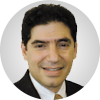As I lecture around the U.S. and write these columns, one refrain I hear in defense of chiropractic is, "But what about medicine?" People will write or talk about the many ills of modern medical practice.
It's true these are significant problems and there are others plaguing the medical profession. However, to its credit, the medical profession is continuously engaged in self-reflection and investigation of its own poor practices. The reason we know about the influence of pharmaceutical marketing on prescribing habits is because the medical profession has investigated this. Likewise, the problems with Vioxx and other medicines and surgical devices have been researched by the medical profession. Do a search at PubMed.gov and you will find studies and editorials on all the problems with the medical profession and its treatments. It seems not one of those studies was done by the chiropractic profession, nor should it have been. The medical profession has its problems, but it investigates them and takes remedial action. How effective are those remedial actions? Don't worry. Someone in the medical profession will research it.
There has not been, nor should there be, a chiropractic watchdog group keeping tabs on the medical profession. I have been told chiropractic needs to stand as a bulwark against the medicalization of life. There also are chiropractors who have their pet peeves about medical practice. All they want to do is attack the medical profession. They think it's their job to reform medical practice. A few people have asked that I join in their campaigns against this or that medical procedure. They want my ethics column to become an extension of their diatribes.
I do not think it is our job to reform medical practice or point out the problems with the medical profession. If it were our job to do so, all we would be doing is pointing to research the medical profession had done. It looks self-serving when members of the medical profession attack us. I know they try to say it's in the public's interest, but the Wilk case showed that altruism is not always the motivator for attacking chiropractic. We chiropractors often see how biased their critique of chiropractic is. It does not look any less self-serving or any more objective when we attack them. One doesn't climb the ladder of success by stepping on other people on the way up. Some members of the public might be duped by the argument, "What about them?" but most will see it as a thinly veiled attempt to deflect criticism of our profession onto them. In fact, it sounds rather childish. "I know you are, but what am I? Nah nah nah!"
Trying to deflect criticism of chiropractic by saying, "What about medicine?" is a kind of argument called a "red herring" argument in formal logic. It also is an example of a "two wrongs make a right" argument. What the medical profession does or doesn't do shouldn't matter to our profession. If all we did was point out medicine's errors as an excuse for continuing to have our own problems, we would never improve. We can benchmark ourselves against the medical profession's positive behaviors or the positive behaviors of other professions. But if they have poor performance, it's not an excuse for our poor performance.
I heard Mark Chassin, MD, MPP, MPH, speak at a program put on by the New York State Chiropractic Association. Dr. Chassin was a member of the Institute of Medicine committee that wrote To Err is Human and Crossing the Quality Chasm. He talked about benchmarking the medical profession's handling of errors with the aviation industry. From design to construction, to takeoff and landing aircraft, aviation is among the safest and least error-prone industries. It also has a great record of self-correction after problems are discovered. This is an example of using an industry that does something in an exemplary way to provide guidance for how another industry can do better. As a profession, we can choose to benchmark ourselves for improvement, but not to excuse our problems.
Stephen Dubner and Steven Levitt, authors of Freakonomics, wrote, "If morality represents how we would like the world to work, then economics represents how it actually does work." We need to judge ourselves against an ideal of what a profession should be (the ethics) by looking at what we actually do (the economics). A characteristic of professions is that they are self-regulating. Let us let them regulate themselves, as we need to do to our own profession.
Ultimately, my response to the doctors who want to say, "But what about medicine?" is that my topic is chiropractic ethics, not the ethics of the medical profession. I should no more comment on medicine's ethics than I should comment about the moral compass of any other vocation that is not chiropractic. This is a column about chiropractic ethics, period.
Click here for previous articles by Stephen M. Perle, DC, MS.





